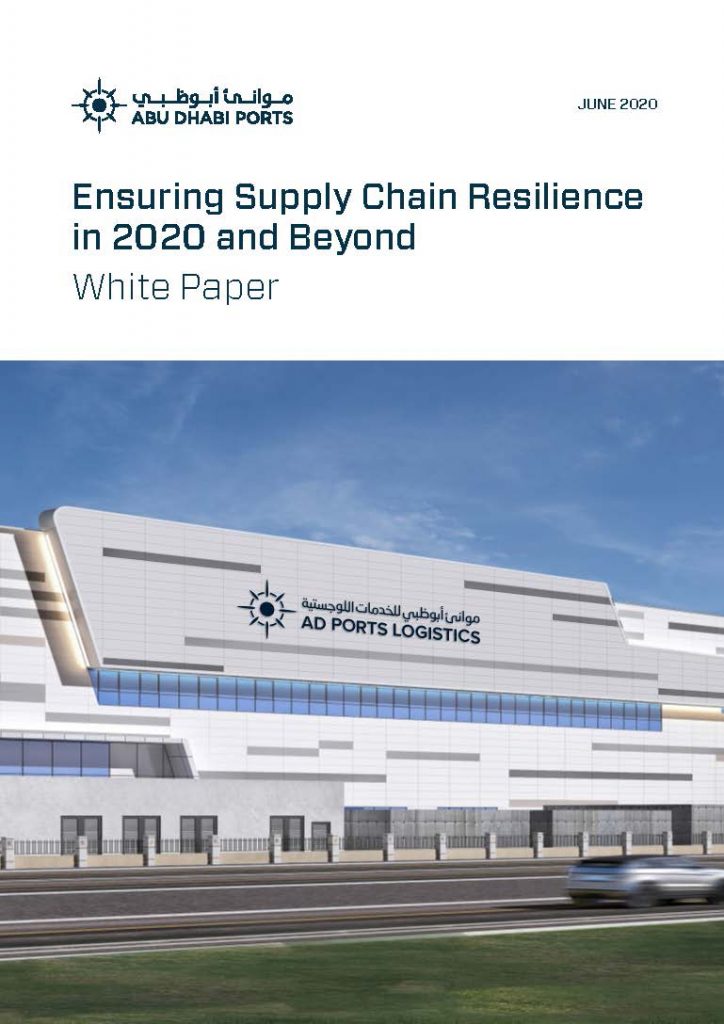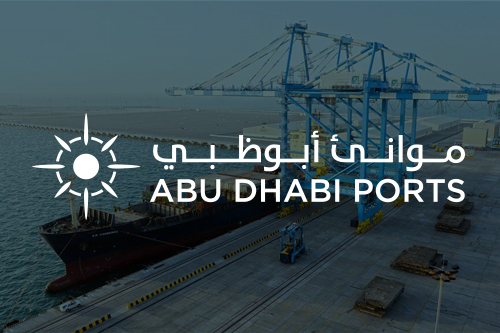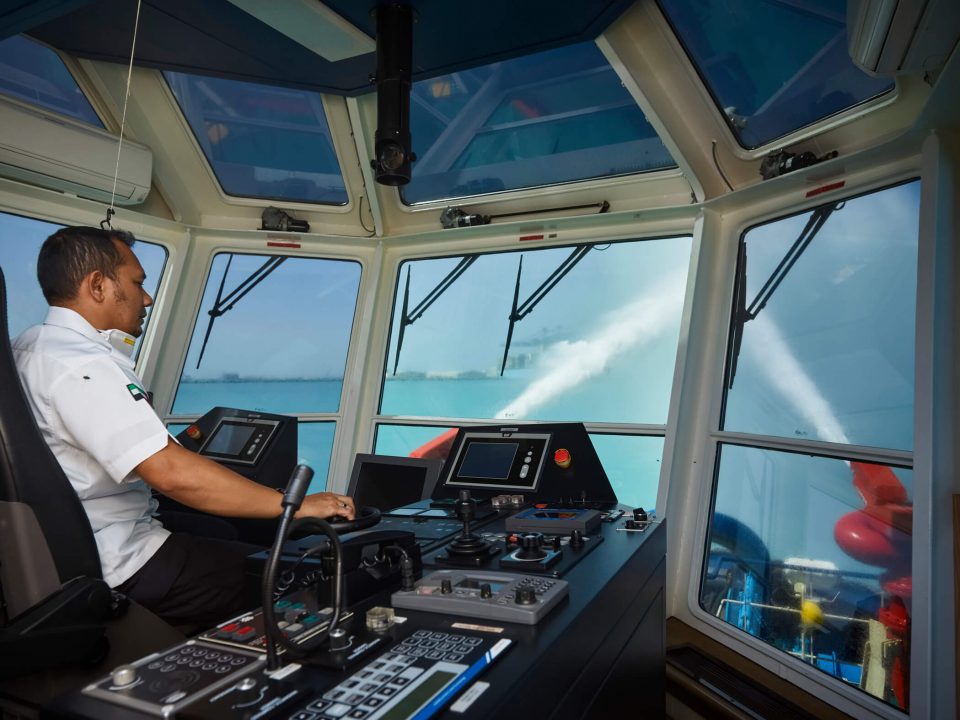- Group’s White Paper Outlines Key Elements Businesses Need to Ensure Robust Logistical Support During COVID-19 Era
Abu Dhabi, United Arab Emirates, 02 July, 2020: Supply-chain resilience will play a pivotal role in determining whether companies engaged in global trade are able to weather the logistical challenges presented by COVID-19, said Abu Dhabi Ports in a white paper launched at a recent high-level expert webinar hosted by the company.
According to industry experts from around the world who contributed their insights and perspectives to the white paper entitled “Ensuring Supply-Chain Resilience in 2020 and Beyond”, supply-chain resilience is vital to the sustainability of any business, as it determines its ability to maintain operations in the event of disruption. They pointed out that companies with superior resilience tend to not only defend and maintain their businesses during disruptive times, but also benefit from the opportunities that emerge once the crisis has abated.
The global logistics experts also shared their views and experiences on how companies can cope with external trade shocks, and even realise competitive advantage during the unprecedented logistical turbulence brought on by the COVID-19 pandemic.
Echoing the sentiment, Abu Dhabi Ports believes that companies with resilient supply-chains position themselves for greater success based on their appetite for risk, establishment of a risk management culture, investment in technology, willingness to use and act on data, and acceptance of views of external experts.
Robert Sutton, Head of Logistics Cluster, Abu Dhabi Ports, said: “This white paper captures contemporary thinking from some of the leading minds in the complex world of supply-chain management. We are eager to share their findings, and our own insights, with our entire eco-system of Abu Dhabi Ports’ stakeholders, from Brazil and the United States to the UK, Saudi Arabia, India, and China.
“Our organisation aims to provide complete, end-to-end supply-chain support solutions to our increasing list of global customers, and helps them realise competitive advantage and growth, especially during challenging times. Therefore, it is important that we regularly take time to actively listen and consider how to calibrate and position ourselves to the rapidly evolving dynamics of the world’s trade community.
“Through our research, we have validated that companies which have invested in the requisite assessment and preparation phases of supply-chain risk mitigation have been able to meet the challenges presented thus far, and will be able to continue to do so in the near term.”
 Karim Shariff, UAE-based Partner at Bain & Company, a leading global management consultancy, which contributed to the white paper research, said: “I would stress that when it comes to supply-chain resiliency, the most important factors to consider are adapting to the demands of customers, building an agile network, and having an empowered organisation with clear risk management across all levels. Finally, data is paramount. We are living in an age of an abundance of data, however, many companies aren’t able to make sense of it and focus on the wrong information, which leads to flawed insights and actions.”
Karim Shariff, UAE-based Partner at Bain & Company, a leading global management consultancy, which contributed to the white paper research, said: “I would stress that when it comes to supply-chain resiliency, the most important factors to consider are adapting to the demands of customers, building an agile network, and having an empowered organisation with clear risk management across all levels. Finally, data is paramount. We are living in an age of an abundance of data, however, many companies aren’t able to make sense of it and focus on the wrong information, which leads to flawed insights and actions.”
Cathy Morrow Roberson, US-based Founder and Head Analyst at Logistics Trends and Insights said: “Every day, supply chain companies must navigate a world of risks. To do that successfully, requires flexibility and the agility to respond quickly to unexpected disruption. It is crucial that companies have the right technology, tools and partners to help them manage and mitigate both known and unknown risks. With the right systems in place, businesses can increase their chances of minimising disruption to trade and maximising success in the marketplace.”
The white paper was launched at a webinar, “Trade and Logistics in the Time of COVID-19”, organised recently by Abu Dhabi Ports with the participation of senior executive panellists from the banking, food, and logistics sectors, and hundreds of high-level participants from around the world.
Tom Harvey, Commercial Director, Spinneys Dubai, who participated in the webinar, said: “The fundamental process of supply chain management has not changed due to COVID-19. We continue to source goods both locally and from around the world, and this will not change as consumers continue to demand a wide variety of products. What has changed is the ways of working together.
“Never has it been more important to ensure excellent communication and information sharing with every part of our supply chain. Past performance cannot be the only parameter by which to predict future demand, both in the short and long term. Sharing of thoughts and ideas and collaborating as one supply chain is now more important than ever before as we navigate together to a successful recovery.”
For a complete copy of Abu Dhabi Ports’ white paper, “Ensuring Supply-Chain Resilience in 2020 and Beyond,” please visit the following link: https://bit.ly/31D16sP



























